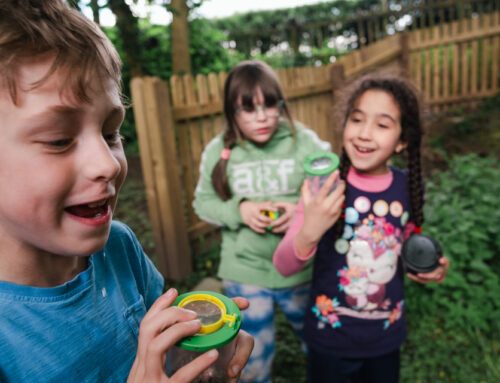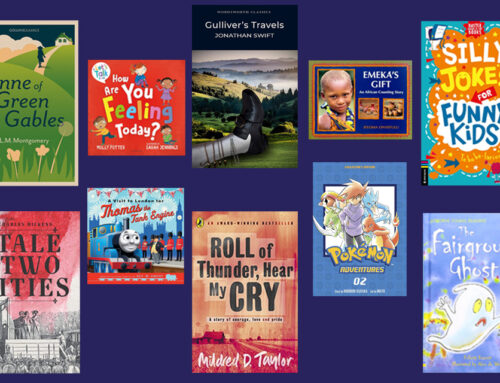Children with high learning potential, especially those who display Sensual Overexcitability, have a heightened awareness of one or all five senses: sight, smell, taste, touch, and hearing. Children with sensual overexcitability can be sick from the smell of certain foods or as toddlers will hate to walk on grass in their bare feet. They may overreact to certain loud noises or dislike certain foods because of the feel of the food in their mouths. On the other hand, they very often find great joy in their intense appreciation of beauty, whether in writing, music, art or nature. How can we support children with sensual overexcitability?
1. Understand their overexcitability
Whilst by no means a panacea, the most effective first step in supporting a child with sensual overexcitability is to read up on it and understand it. From this starting point, a parent is always then best placed to effectively support their child and provide the comfort and reassurance that comes from that child knowing that their parents “get it”.
Any suggestions that they are “overreacting” to whatever smell, sound, sight etc. is distressing them is at best unhelpful, but at worst, detrimental to their wellbeing. They need to know that their overexcitability is understood, that it is okay, and that they will be supported to help manage it; never shamed for having it in the first place. Gaining a really good understanding of this overexcitability not only helps a parent to support them effectively, but also places a parent in the best position to advocate for their child when others show that they have not yet understood it.
2. Look after their emotional wellbeing and prioritise relaxation
Your overexcitable child may not be expressing their fears or anxieties all the time, but it does not mean that they are not there. Be aware of this and be there to listen to worries, to reassure, and to provide cuddles for that emotional and tactile input, is an important element of support.
Factoring relaxation into the day is another key way to support their sensual overexcitability. As indirect as it may seem, the link is often stronger than it first appears: the calmer a child with sensual overexcitability is, the easier they will tend to be able to manage their sensitivities. But more than that, many general relaxation strategies can be of direct assistance to a child with sensual overexcitability. The calm corner of the house that they can go to for a sensory break (aka away from their siblings!), some yoga or guided relaxation, or perhaps a comfortingly calm audiobook or piece of music, these all have the benefit of directly supporting many of the needs of a child with sensual overexcitability. As such, ensuring that these relaxation needs are met on a daily basis can be of immense support to a child with sensual overexcitability.
3. Create a top ten of sensory saviours
Getting your child to come up with their Top Ten of sensory helpers is a really positive way to help them with their sensual overexcitability. Firstly, it gives them a very welcome sense of control over their overexcitability and how to manage it. Such a sense of agency can really boost their self-esteem and general sense of positivity, which can, in turn, help them to better deal with their overexcitability. It can also help to ensure that they have a set of strategies that really help them; not strategies chosen by others that don’t.
The list might include their top comforts or strategies that help their overexcitabilities in other ways. Their softest teddy, their go-to blanket, and their favourite soothing music all might make the list alongside, perhaps, a homemade card to bring out to show they need some alone-time, or all sorts of other small helps for their overexcitability. As long as they feel it helps them and gives them that comfort that they require, then it can make the Top Ten! Allow them to be creative with their ideas; as long as they are age-appropriate and pass the parent test, they can be as unconventional as they like!
Their involvement in the process also improves the chances of them being willing to apply the strategies when needed. It is extremely rare to get away with parenting a child with high learning potential without encountering at least a few examples of dazzling feats of often totally self-defeating, but utterly entrenched all the same, shear stubbornness. Yet even the most obstinate of bright children will be less likely to refuse strategies they came up with themselves. The avoidance of a battle of wills is a useful consequence both for your child and their overexcitability and for your life as their parent!
Ultimately, by creating their Top Ten they will then always have that go-to list to refer to whenever they need a little support for their sensual overexcitability, giving a sense of reassurance and support.
4. Work out the best support plan for their overexcitability
If you already have a plan in place, take time for a quick evaluation; step back and see what works and what doesn’t. If you’ve yet to devise a plan, try new things, jettison what clearly doesn’t work, and feel confident in the knowledge that both will be as positive as each other.
Discuss with teachers what appears to be working at school – and what isn’t and loot your child’s own ideas from their Top Ten! Trying a few different things may mean that you discover a real gem of support that can be fed into their day. Equally, realising that something doesn’t work, accepting that and not keeping it in the mix is positive, too. There’s nothing more demoralising than something ill-suited or ineffective remaining in any support plan: at best it just isn’t of any use, but at worst it may lead to a child feeling that the “not working” must then be their fault.
When you find out things that work then feed them back to your school, so that your child’s sensual overexcitability can be supported appropriately. It may well be that the headphones work but the calm corner at school needs a slightly different set up; or perhaps it will become clear that what is already in place needs to be done at more regular intervals for the best outcomes. Feeding this kind of information back to school (if then acted upon) ensures the best possible support, which can, in turn, be positive for their concentration, behaviour, the avoidance of frustration and their general wellbeing. It is also, of course, likely have a positive effect on their academic achievement, too.
5. Get Out and About
As well as helping with wellbeing in a general sense, exercise can also help a child with sensual overexcitability by providing the opportunity to stimulate and satisfy the more abstract and intangible needs of their overexcitability. A walk or time spent in the garden, for instance, can really feed the joy of a child with sensual overexcitability by providing that all-important access to nature and the opportunity to enjoy the beauty in it. Be it big or small; be it an uplifting view, gazing up at the skies, microfocusing on a daisy or discovering the loveliness of a ladybird, getting out and about can be a key way to nourish your child with comforting, positive and uplifting sensory data.
For more information on overexcitabilities, have a look at our advice sheet PA610, Hypersensitivity (Dabrowski’s Overexcitabilities), which gives a useful overview of all five overexcitabilities.
About the author: Caroline Hooton-Picard is an adviser for Potential Plus UK. She has a background in mental health, having worked for Suffolk Mind and also in private practice, and has a first class degree in Philosophy from the University of Essex. She also has a High Learning Potential daughter who keeps her very much on her toes!






